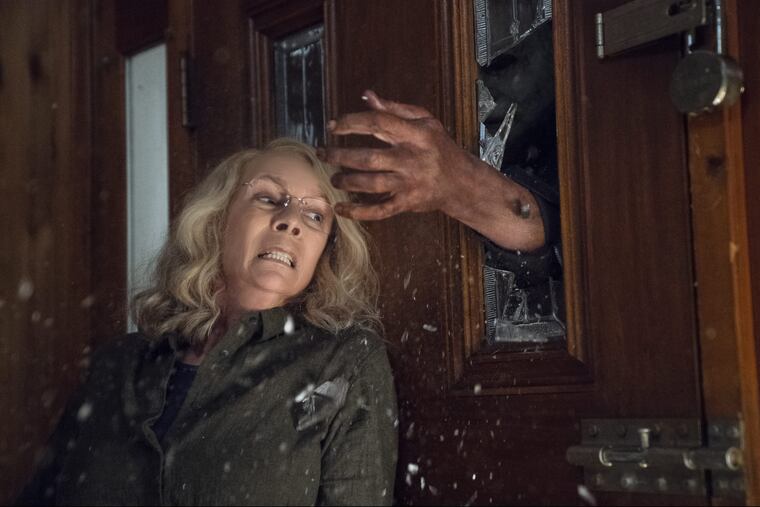‘Halloween’: Michael Myers returns, and Laurie Strode is waiting for him
Let's just pretend those sequels don't exist.

Four decades ago, horror master John Carpenter unleashed masked killer Michael Myers on an idyllic Illinois town with Halloween, resulting in the grisly deaths of five people and the popularization of the slasher movie subgenre. A slew of sequels and reboots followed, each more dismal than the last.
Director David Gordon Green's newly released Halloween, however, has the film franchise springing back to life just when you thought it was dead, much like its star killer. And unlike with the series' other sequels, this one finally feels like it was worth the wait.
Written by Green and frequent collaborators Jeff Fradley and Danny McBride, the new Halloween follows Jamie Lee Curtis' Laurie Strode, the lone survivor of Myers' first killing spree, 40 years after the original film. Don't, however, expect her to make references to previous Halloween sequels — in this Halloween's universe, those films never existed. Instead, it's a direct follow-up to the original.
A self-described "twice-divorced basket cast," Strode today is a jaded, gun-toting survivalist, and has been waiting for Myers (played by original actor Nick Castle and James Jude Courtney) to return ever since 1978 in hopes of getting revenge. Myers escapes from prison on Halloween and Strode's paranoia proves wise, so she gathers her family — estranged daughter Karen (Judy Greer) and granddaughter Allyson (Andi Matichak) — to take down her real-life Boogeyman once and for all.
Curtis' performance as babysitter-turned-warrior is the focal point of the film, and her version of Strode carries the responsibility well. She is a broken woman as a result of Myers' assault, and has lost everything from her family to her reputation. Racked by PTSD, a normal life for her doesn't seem possible, at least while Myers is able to walk the streets. Curtis' portrayal of Strode is realistic and powerful, and shows the type of regret and loss her character might experience.
With the #MeToo movement still in full swing, that story can easily be viewed as an allegory comeuppance of Hollywood's other famous white male predators. It's more extreme than a lawsuit, but here, we see three generations of Strode women band together to go after their attacker — a regular, old white dude who never shows his face and isn't actually all that powerful to begin with.
And, boy, does it feel good.
Oddly, though, Myers' original killing spree seems somewhat less shocking 40 years removed from the initial murders — a point that some of the film's characters debate early on. After all, we live in a world today where murderers shoot up people at country music concerts and high schools, which makes a guy killing five people in a small town feel less impactful. It's horrible, but is it something that can become an unwavering obsession in a person's life for 40 years? For Strode, the answer is yes, though at a great personal cost, a sad but necessary life choice.
Despite its successes, this Halloween falls just short of feeling like its own film. There is a lot of fan service to the original, and Green and McBride's love of stoner-slacker humor disrupts some of the film's more intense moments. It also essentially recycles the first film's structure, and serves mostly as a love letter to Carpenter's landmark film — but with way more gore.
Halloween fans, however, will likely be charmed, if only because it is nowhere near as bad as the previous sequels. Instead, like Strode, it's just a little more badass.
MOVIES
Halloween
Directed by David Gordon Green. With Jamie Lee Curtis, Judy Greer, Andi Matichak, Nick Castle, and James Jude Courtney. Distributed by Universal.
Run time: 1 hour, 49 mins.
Parents guide: R (language, violence)
Playing at: Area theaters